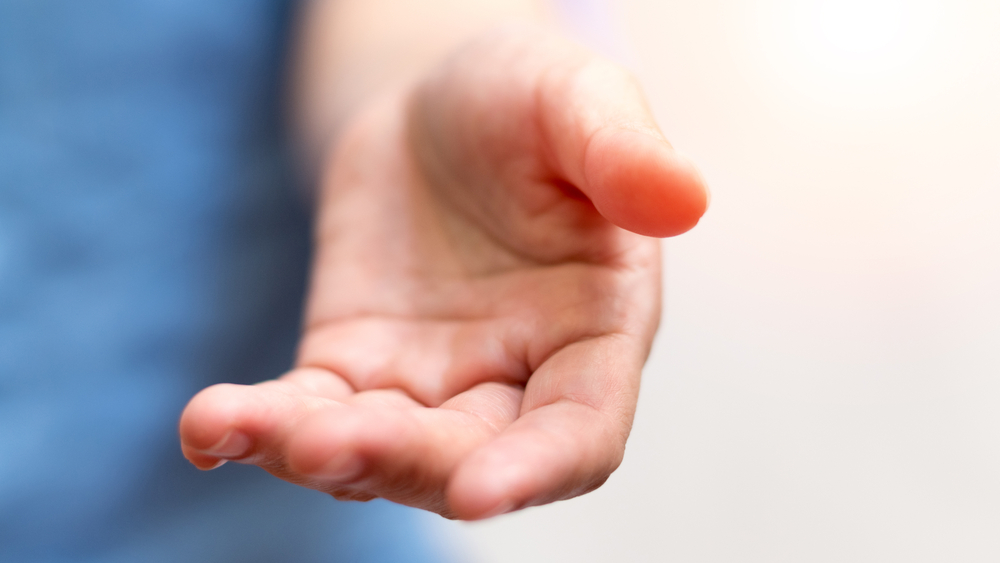Solidarity in times of corona
Fear of the coronavirus may drive people to exclude others, call for extreme measures or refuse to face reality. Corona affects not only individuals, but fear also undermines the whole of society. This is why we must solve the crisis as a community, Wageningen philosophers state. In addition to balanced government policy, solidarity, compassion and shared responsibility are indispensable in these uncertain times. What does solidarity look like for you?
The global outbreak of the novel coronavirus has societies facing tremendous challenges and ethical issues. For example, to what lengths may a government go to curb the spread of the virus. ‘Far-reaching measures are needed. But at the same time, the government must protect people’s freedom as much as possible,’ says philosophy professor Marcel Verweij.
“But the best way to stimulate solidarity is to show our resourcefulness and to show how many initiatives we are taking to support each other. The news bulletins will hopefully continue to highlight this.”
Still, if we base our view of ourselves and our society on solidarity, protecting public health need not be directly opposed to the freedom and wellbeing of individuals, according to Verweij. ‘This prevents us from thinking in terms of infected individuals, as opposed to society as a whole.’
Care for each other
‘The virus directly impacts the health of individuals and society at large. We are affected as a community and must solve this as a community. Thus, we must shoulder the burden of preventing infection together and curb the risk of infection as much as possible. Solidarity means we must face the risks together. And when someone is affected by the disease, we should consider this a blow to society, and gather around him or her,’ says Verweij. That is also the message divulged by the Dutch government: think about others, care for each other and take responsibility for each other.
Threatening
The paradox of infectious diseases is that we must distance ourselves from others to protect our community. We must isolate ourselves. For example, no getting together in groups, no visiting grandparents, and no sharing the same space. And many people are quarantined as a preventive measure if they show symptoms.
These measures, the isolation and limited freedom of movement, may feel threatening. Besides, people fear the disease itself. This fear may cause them to exclude others. A fact that was clearly demonstrated by the vandalism and threats directed at Chinese students in student housing in Wageningen. Elsewhere in the Netherlands, people originating from an Asian background were targetted by discrimination linked to the coronavirus.
Denial or hoarding
Fear of the virus causes people to have to fend for themselves. Some try to flee affected areas; others are in denial and pretend nothing is going on. Both these reactions contribute to the spread of the virus. Verweij: ‘We have also seen a tendency towards hoarding. This puts others at risk. I read somewhere that people working in crucial jobs are applauded. But at the same time they are unable to restock groceries after their shift because supermarket shelves were empty.’
Fear also leads to the demand for stricter measures; the philosopher continues. ‘While most stringent measures are not always the most effective. The quarantine Japan imposed upon the cruise ship Diamond Princess, for example, resulted in exposing the passengers to an increased contamination risk which led to further spread of the disease.’
Science and compassion
The government must respond to fear with a well-substantiated policy, supported by experts, Verweij states. ‘Trust in the government’s approach, and the scientific knowledge about infections helps curb the fear. But strong emotions cannot be met purely with science. We also need unifying emotions, such as compassion and solidarity.’

In Italy, children are putting up drawings of rainbows in the windows
We see many heartwarming expressions of support between citizens. From people offering to walk dogs or do grocery shopping, to children putting up drawings of rainbows in the windows in Italy, where neighbours also sang for each other from balconies. We see flowers handed out to health care professionals and banners hoisted to show support. There is a veritable flood of initiatives from people sharing their expertise online in areas such as education, hobbies, or home gym exercising free of charge. Many health workers that left the profession are returning to the work floor, despite the risk of infection. ‘Many people are willing to shoulder extra burdens and responsibilities to help others,’ Verweij explains.
Solidarity with doctors
Given the increasing number of corona patients, our society must also show solidarity with doctors working on the intensive care units (ICUs). ‘If there is a shortage of beds, doctors are faced with impossible choices of life and death. How can we distribute the available capacity in such a way that we can save the highest number of lives? This consideration is not just a medical issue; it is a societal responsibility,’ according to Verweij. Although there are national ICU guidelines, these have not yet been supported and established in government policy. ‘It would have been better if parliament had discussed this years ago. The debate currently being held is terrifying to many people.’
Dykes
Does the government have a role in fostering solidarity among citizens? ‘The call for solidarity is essential, as this contributes to the general tone. But the best way to stimulate solidarity is to show our resourcefulness and to show how many initiatives we are taking to support each other. The news bulletins will hopefully continue to highlight this,’ Verweij says.

The Netherlands is well equipped to handle the corona crisis. ‘We have many institutes, among which are the health insurance companies, to make sure the individual burdens are distributed over the majority. The Dutch are individualists, but we do support each other. Our dykes are an excellent example of this: all of us pay, and in the end, all are protected.’
Read more
- Marcel Verweij’s contributions to the public debate
- ‘Science talks Corona’, short videos on the spread, vaccine and solidarity
- Dossier on Covid-19
- Read this article in Dutch

